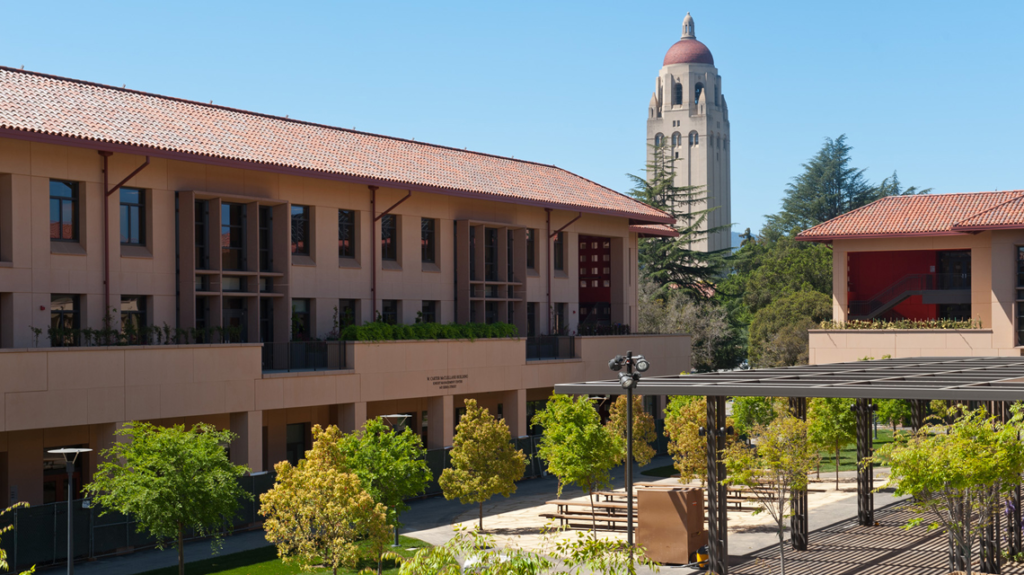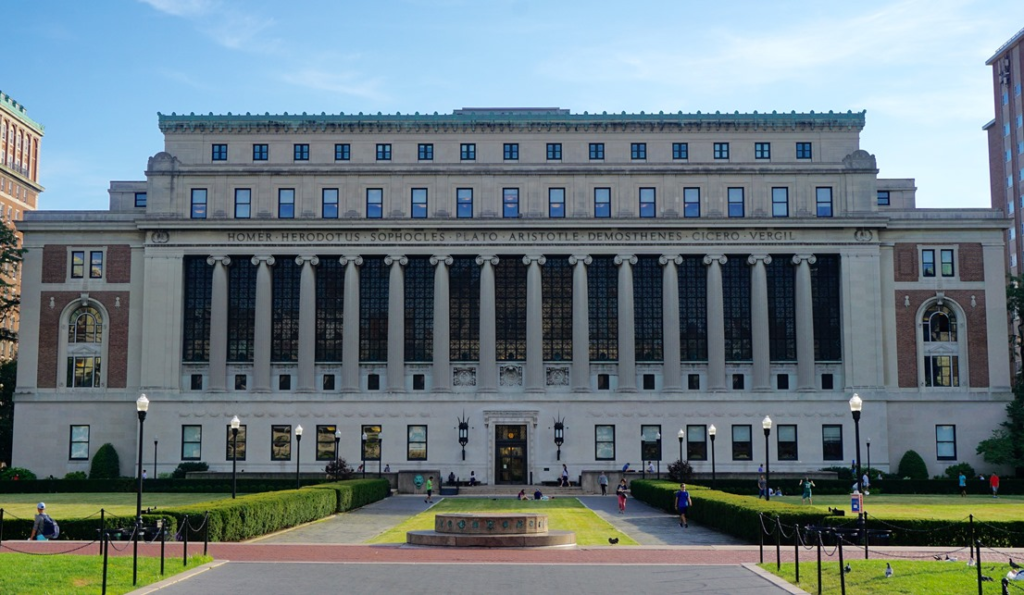Are you considering pursuing an MBA to elevate your career prospects? An MBA Universities in USA is a significant investment in your future, with the potential to open doors to high-paying jobs and leadership positions in top companies worldwide. But why is an MBA Universities in USA considered so valuable, and what factors should you consider when choosing a program? In this guide, we will explore everything you need to know about MBA universities in USA. The focus will be on delivering clear and concise data, supported by facts and figures that will help you understand the various aspects of pursuing an MBA in the USA.
By the end of this guide, you will have a comprehensive understanding of what it takes to choose the right MBA Universities in USA, how to navigate the admission process, the costs involved, and the career opportunities that await you after graduation. Let’s dive in.
Why Choose an MBA Universities in USA?

An MBA from the USA is globally recognized, offering students access to top-notch education, resources, and a diverse network of professionals. According to the Financial Times Global MBA Rankings, 51 out of the top 100 MBA programs worldwide are based in the USA. This dominance in global rankings underscores the prestige and quality of American MBA programs.
One of the primary reasons to choose an MBA Universities in USA is the diverse range of specialization options available. Whether you’re interested in finance, marketing, technology, or entrepreneurship, American universities offer a wide variety of courses that allow you to tailor your MBA to your career goals. This diversity is not only limited to academic specializations but also extends to the industries and sectors you can explore through internships, case studies, and projects.
The potential return on investment (ROI) for an MBA Universities in USA is also a significant factor. According to a survey by the Graduate Management Admission Council (GMAC), the median salary for MBA graduates in the USA is $115,000, which is nearly double the median salary of individuals with only a bachelor’s degree. Additionally, many MBA programs in the USA boast high job placement rates, with over 90% of graduates securing employment within three months of graduation.
Top MBA Universities in USA
The USA is home to some of the most prestigious MBA programs in the world. Below, we provide an overview of the top MBA Universities in USA, along with key data on rankings, acceptance rates, tuition fees, and other essential information.
Harvard Business School
Harvard Business School (HBS) is renowned for its case study method, which immerses students in real-world business challenges. HBS has a strong emphasis on leadership and offers a wide range of specializations, including finance, marketing, and entrepreneurship. The alumni network is one of the largest and most influential globally, with graduates holding top positions in various industries.

| Ranking | #1 (QS World University Rankings) |
|---|---|
| Acceptance Rate | 11% |
| Tuition Fees | $73,440 per year |
| Additional Expenses | $30,000 per year (living, books, etc.) |
| Notable Alumni | Michael Bloomberg, Sheryl Sandberg |
| Average GMAT Score | 730 |
| Post-Grad Salary | $150,000 per year |
Stanford Graduate School of Business
Stanford GSB offers a highly flexible MBA program that allows students to customize their learning experience. Located in the heart of Silicon Valley, the school has strong ties to the tech industry, providing students with unparalleled opportunities to engage with leading tech companies.

| Ranking | #2 (QS World University Rankings) |
|---|---|
| Acceptance Rate | 6.9% |
| Tuition Fees | $74,706 per year |
| Additional Expenses | $32,000 per year (living, books, etc.) |
| Notable Alumni | Phil Knight, Mary Barra |
| Average GMAT Score | 733 |
| Post-Grad Salary | $153,900 per year |
Wharton School of the University of Pennsylvania
Wharton is known for its strong emphasis on finance and entrepreneurship. The school offers a wide range of dual-degree options, allowing students to combine their MBA with degrees in law, engineering, or international studies.

| Ranking | #3 (QS World University Rankings) |
|---|---|
| Acceptance Rate | 19% |
| Tuition Fees | $76,000 per year |
| Additional Expenses | $29,000 per year (living, books, etc.) |
| Notable Alumni | Donald Trump, Elon Musk |
| Average GMAT Score | 732 |
| Post-Grad Salary | $147,000 per year |
MIT Sloan School of Management
MIT Sloan is distinguished by its focus on innovation and technology, making it an ideal choice for students interested in these fields. The school is also known for its rigorous research opportunities, with numerous labs and centers dedicated to cutting-edge business research.

| Ranking | #5 (QS World University Rankings) |
|---|---|
| Acceptance Rate | 14.6% |
| Tuition Fees | $77,168 per year |
| Additional Expenses | $31,000 per year (living, books, etc.) |
| Notable Alumni | Kofi Annan, Bill Ford |
| Average GMAT Score | 727 |
| Post-Grad Salary | $144,000 per year |
Columbia Business School
Columbia Business School offers a global business focus, with a curriculum designed to prepare students for leadership roles in international organizations. The school’s strategic location in New York City provides students with access to a wide range of industries and networking opportunities.

| Ranking | #8 (QS World University Rankings) |
|---|---|
| Acceptance Rate | 16% |
| Tuition Fees | $77,376 per year |
| Additional Expenses | $33,000 per year (living, books, etc.) |
| Notable Alumni | Warren Buffett, Henry Kravis |
| Average GMAT Score | 726 |
| Post-Grad Salary | $148,000 per year |
University of Chicago Booth School of Business
The University of Chicago Booth School of Business is known for its analytical approach to business education. The school’s flexible curriculum allows students to tailor their MBA experience to their interests and career goals.

| Ranking | #9 (QS World University Rankings) |
|---|---|
| Acceptance Rate | 22% |
| Tuition Fees | $74,919 per year |
| Additional Expenses | $28,000 per year (living, books, etc.) |
| Notable Alumni | Satya Nadella, David Booth |
| Average GMAT Score | 724 |
| Post-Grad Salary | $146,000 per year |
Northwestern University Kellogg School of Management
Kellogg is known for its emphasis on leadership and teamwork. The school offers a collaborative culture, with numerous opportunities for students to engage in group projects and case competitions.

| Ranking | #14 (QS World University Rankings) |
|---|---|
| Acceptance Rate | 20.5% |
| Tuition Fees | $74,871 per year |
| Additional Expenses | $29,000 per year (living, books, etc.) |
| Notable Alumni | John Hoeven, Arthur E. Anderson |
| Average GMAT Score | 727 |
| Post-Grad Salary | $143,900 per year |
University of California, Berkeley (Haas School of Business)
Haas School of Business offers a strong focus on entrepreneurship, with close ties to Silicon Valley. The school’s curriculum emphasizes innovation and leadership, preparing students for careers in technology and other dynamic industries.

| Ranking | #12 (QS World University Rankings) |
|---|---|
| Acceptance Rate | 23.1% |
| Tuition Fees | $64,116 per year (in-state); $69,887 (out-of-state) |
| Additional Expenses | $28,000 per year (living, books, etc.) |
| Notable Alumni | Paul Otellini, Shantanu Narayen |
| Average GMAT Score | 725 |
| Post-Grad Salary | $141,000 per year |
Yale School of Management
Yale SOM integrates business and society, offering a curriculum that prepares students for leadership roles in various sectors, including government, non-profits, and the private sector. The school’s focus on ethical leadership is reflected in its courses and student activities.

| Ranking | #17 (QS World University Rankings) |
|---|---|
| Acceptance Rate | 24% |
| Tuition Fees | $72,350 per year |
| Additional Expenses | $30,000 per year (living, books, etc.) |
| Notable Alumni | Indra Nooyi, Timothy Geithner |
| Average GMAT Score | 720 |
| Post-Grad Salary | $140,000 per year |
University of Michigan Ross School of Business
Ross School of Business is known for its action-based learning approach, which involves solving real-world business problems. The school’s curriculum also emphasizes sustainable and responsible business practices, making it an ideal choice for students interested in social impact.

| Ranking | #10 (QS World University Rankings) |
|---|---|
| Acceptance Rate | 23.5% |
| Tuition Fees | $67,114 per year (in-state); $72,114 (out-of-state) |
| Additional Expenses | $29,000 per year (living, books, etc.) |
| Notable Alumni | Larry Page, Mary Sue Coleman |
| Average GMAT Score | 710 |
| Post-Grad Salary | $139,000 per year |
Admission Process for MBA Universities in the USA
Understanding the admission process for MBA Universities in USA is crucial for applicants. The following sections provide detailed insights into eligibility criteria, application timelines, and tips for preparing your application.
Eligibility Criteria
To be eligible for an MBA Universities in USA, applicants generally need a bachelor’s degree, competitive GMAT/GRE scores, and relevant work experience. Below is a summary of the typical requirements.
| Requirement | Details |
|---|---|
| GMAT/GRE Scores | Average GMAT score: 710-730; GRE also accepted |
| Work Experience | 3-5 years average work experience required |
| Academic Background | Bachelor’s degree from an accredited institution |
| Language Proficiency | TOEFL/IELTS required for non-native speakers |
Application Timeline
The application timeline for MBA Universities in USA usually includes multiple rounds. Below is a typical timeline.
| Round | Application Deadline | Decision Notification |
|---|---|---|
| Round 1 | September-October | December |
| Round 2 | January-February | March |
| Round 3 | April | May |
Preparing Your Application
Preparing a strong application involves crafting a compelling Statement of Purpose (SOP), securing Letters of Recommendation (LORs), and tailoring your resume. Below are tips for each component.
| Application Component | Tips |
|---|---|
| Statement of Purpose | Highlight your career goals and why an MBA in the USA aligns with them. |
| Letters of Recommendation | Choose recommenders who can speak to your leadership and professional achievements. |
| Resume/CV | Focus on your professional experience, quantifiable achievements, and leadership roles. |
Cost of MBA Programs in the USA

Pursuing an MBA Universities in USA is a significant financial investment. Below, we break down the costs involved, including tuition fees, scholarships, and financial aid options.
Tuition Fees
Tuition fees for MBA Universities in USA vary by institution. Below is a comparison of tuition fees across top universities.
| University | Tuition Fees (per year) |
|---|---|
| Harvard Business School | $73,440 |
| Stanford Graduate School of Business | $74,706 |
| Wharton School of the University of Pennsylvania | $76,000 |
| MIT Sloan School of Management | $77,168 |
| Columbia Business School | $77,376 |
Scholarships and Financial Aid
Many universities offer scholarships and financial aid to help offset the costs of an MBA. Below is an overview of the available options.
| Scholarship Type | Details |
|---|---|
| Merit-Based Scholarships | Awarded based on academic and professional achievements. |
| Need-Based Financial Aid | Available to students who demonstrate financial need. |
| External Scholarships | Scholarships offered by external organizations and foundations. |
Career Opportunities After an MBA in the USA

Graduating with an MBA Universities in USA opens up numerous career opportunities. This section provides insights into job placement rates, industry trends, and alumni success stories.
Job Placement Rates
Top MBA Universities in USA have impressive job placement rates. Below is a summary of job placement data.
| University | Job Placement Rate |
|---|---|
| Harvard Business School | 92% |
| Stanford Graduate School of Business | 90% |
| Wharton School of the University of Pennsylvania | 93% |
| MIT Sloan School of Management | 91% |
| Columbia Business School | 92% |
Industry Trends
MBA graduates are in demand across various industries. Below are the emerging sectors with high demand for MBA graduates.
| Industry | Growth Rate |
|---|---|
| Technology | 12% (year-over-year) |
| Healthcare | 9% |
| Consulting | 7% |
| Finance | 6% |
Alumni Success Stories
MBA programs in the USA have produced many successful alumni. Below are notable alumni and their contributions.
| Alumni | University | Achievements |
|---|---|---|
| Sheryl Sandberg | Harvard Business School | Former COO of Facebook |
| Elon Musk | Wharton School | CEO of Tesla, SpaceX |
| Phil Knight | Stanford GSB | Co-founder of Nike |
Unique Aspects of MBA Programs in the USA
MBA Universities in USA offer unique features that set them apart from programs in other countries. This section explores experiential learning, global exposure, and customized learning paths.
Experiential Learning
Experiential learning is a key component of MBA Universities in USA. Below are examples of experiential learning opportunities.
| Learning Method | Details |
|---|---|
| Case Studies | Students analyze real-world business scenarios. |
| Internships | Hands-on experience with leading companies. |
| Practicums | Projects involving real business challenges. |
Global Exposure
Global exposure is another advantage of pursuing an MBA Universities in USA. Below are examples of global exposure opportunities.
| Opportunity | Details |
|---|---|
| Exchange Programs | Study abroad options in partnership with global universities. |
| International Faculty | Professors with diverse global backgrounds. |
Customized Learning Paths
MBA Universities in USA offer flexibility through customized learning paths. Below are examples of customization options.
| Customization Option | Details |
|---|---|
| Elective Courses | Choose courses that align with your career goals. |
| Joint Degrees | Combine your MBA with other disciplines like law or public policy. |
How to Choose the Right MBA University in the USA

Choosing the right MBA Universities in USA is a critical decision. Below are factors to consider, including location, faculty, resources, and alumni networks.
Location
The location of an MBA program can significantly impact your experience. Below is a comparison of city vs. suburban campuses.
| Campus Type | Pros | Cons |
|---|---|---|
| City Campus | Proximity to industry hubs, networking opportunities. | Higher cost of living, more competitive environment. |
| Suburban Campus | Quieter environment, lower cost of living. | Fewer networking opportunities, less industry exposure. |
Faculty and Resources
Faculty expertise and campus resources are important considerations. Below is an overview of what to look for.
| Aspect | Details |
|---|---|
| Faculty Expertise | Look for faculty with industry experience and research credentials. |
| Campus Resources | Libraries, innovation labs, and career services. |
Alumni Network
A strong alumni network can enhance your career prospects. Below are factors to consider when evaluating alumni networks.
| Factor | Details |
|---|---|
| Alumni Connections | A large and active alumni network can offer mentorship and job opportunities. |
| Networking Events | Opportunities to connect with alumni during and after the program. |
Conclusion
Choosing to pursue an MBA Universities in USA is a major decision that requires careful consideration of various factors. The reputation of the university, the specialization options available, the costs involved, and the potential career opportunities are all critical elements to evaluate. This guide has provided a comprehensive overview




